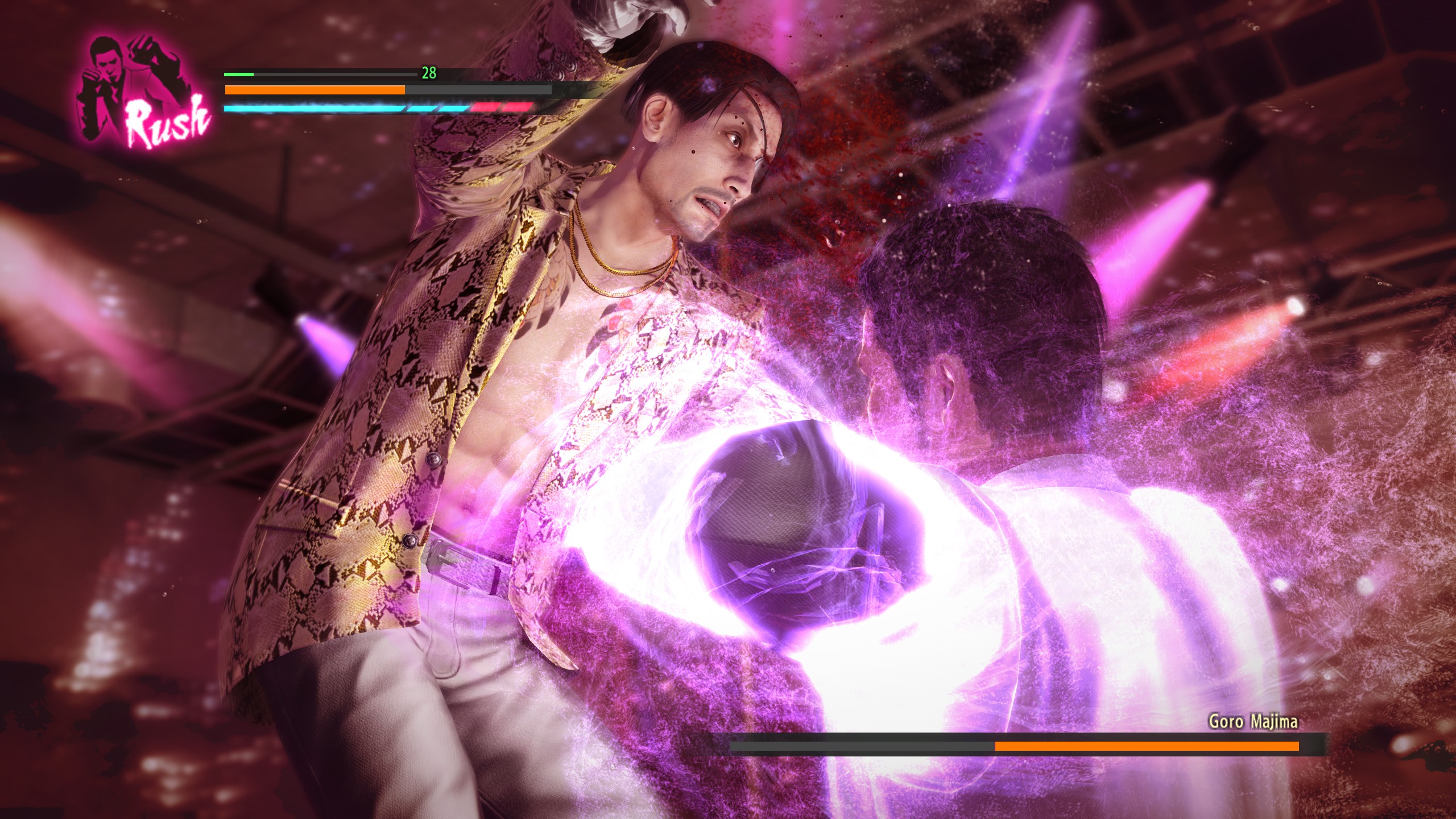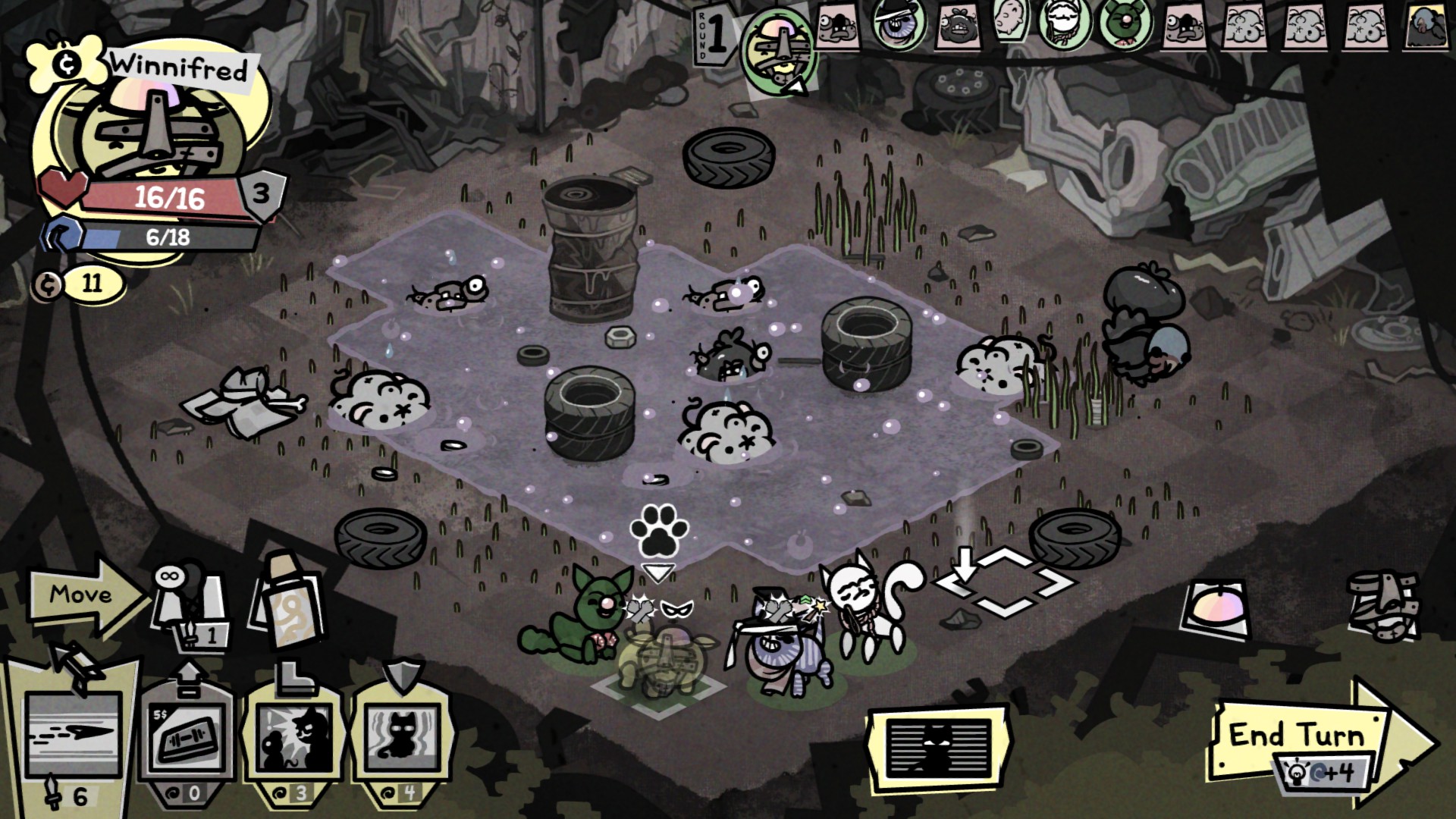Our Verdict
Suffers in comparison to Yakuza 0, but is still a compelling drama and an important part of the series as a whole.
PC Gamer's got your back
What is it? A remake of 2005's Yakuza, in the engine of Yakuza 0.
Expect to pay £15/$20
Developer SEGA
Publisher In-house
Reviewed on GeForce GTX 1070, 16GB RAM, i5-6600k
Multiplayer Online minigames
Link Official site
Welcome back to Kamurocho, the city district where nearly every problem can be solved by kicking, punching or just lifting a guy up into the air and slamming him arse first onto a bollard. A conman tries to scam you out of money? You can punch your way through that. A retired judo pro requests a tour of local nightlife? Yet more punching. An eccentric gangster engineers a series of increasingly elaborate attacks in an attempt to provoke you into fighting him? You get the idea.
Your oath brother murders the head of your crime family? That's a slightly trickier problem to solve. Instead, series protagonist Kazuma Kiryu decides to take the fall, resulting in a ten year prison sentence and his expulsion from the Tojo Clan. Kiryu returns to Kamurocho in 2005, only to learn that Nishikiyama—the man he willingly gave up a decade of his freedom for—has betrayed the clan, triggering a desperate battle for leadership. This, too, is a problem that can be solved by punching. A lot of punching, spread over many hours.
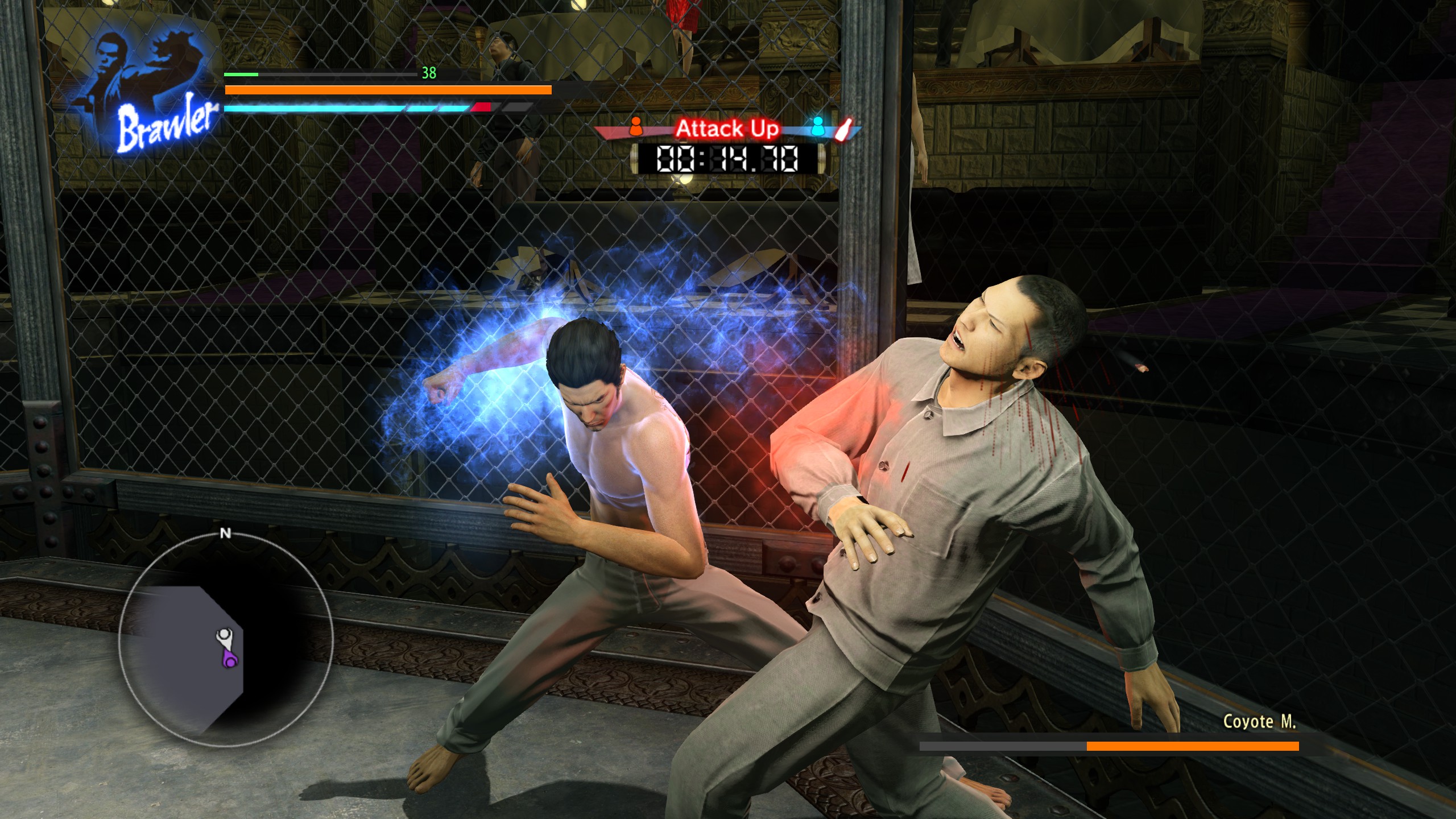
Yakuza Kiwami is, in other words, another Yakuza game, and will be instantly familiar to anyone who's played Yakuza 0. There's the slowly unfolding melodramatic crime drama, the slice-of-life sidequests, and the selection of minigames and activities, from bowling to karaoke to a questionable card battler about scantily clad women roleplaying as insects. It's both serious and silly, sometimes within the same cutscene, but it works because Kiryu is such an inherently likeable lead—calm, authoritative, naive and endearing.
If you haven't played Yakuza 0, go and do that first. Yakuza Kiwami is a remake of the first game in the series into Yakuza 0's engine—its story ever-so-slightly tweaked and expanded to better integrate with the plot points of the '80s prequel. You don't need to have played 0 to understand what's happening in Kiwami, but it's the bigger, better and more well rounded experience. As a remake of a 13-year-old game—even one with extra features—Kiwami takes place entirely in Kamurocho, and offers fewer side activities and less playful substories. It's a relic from a time before the series fully knew what it was, dressed up in the clothes of Yakuza at its best.
Perhaps it's better to think of Yakuza Kiwami as an expansion pack to Yakuza 0. It's by no means a bad game, but expectations need to be managed. Take the reappearance of Kamurocho. Every Yakuza game features the district, but most offer new perspectives, or balance it alongside other locations. Not so in Kiwami. Yet it's still a joy to discover how the setting has changed in the 20 years since the events of Yakuza 0—realising the significance of Millennium Tower in relation to 0's main plot, or discovering what lurks beneath West Park's homeless camp.
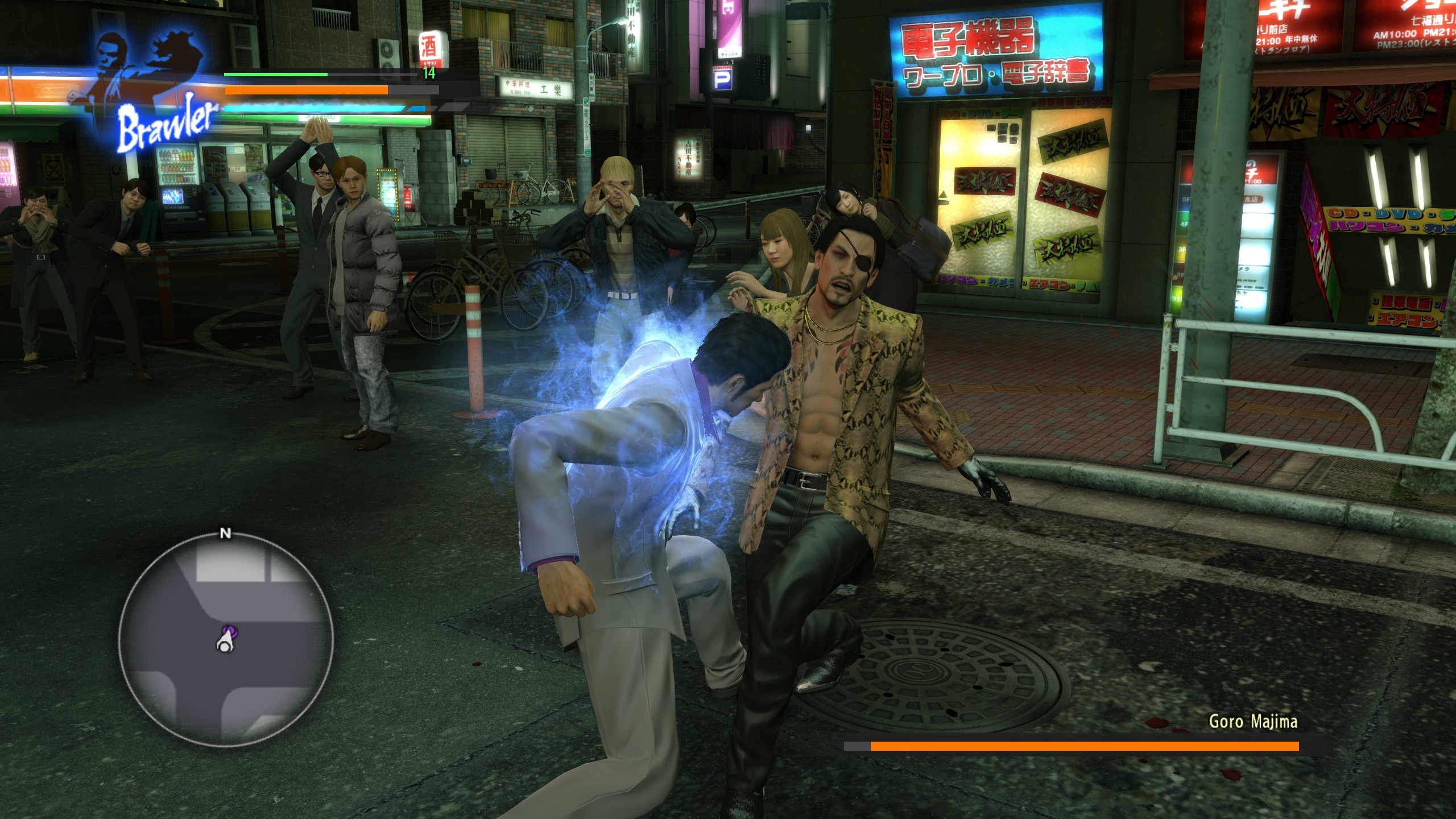
Expectedly, Yakuza Kiwami runs smoothly—easily maintaining 165fps at 1440p resolution on my GTX 1070. There are a handful of graphics quality settings—SSAA, FXAA, texture filtering, and shadow and geometry quality. Even with everything on maximum, though, this is not a game that cares about perfectly rendered high-resolution textures.
There's plenty you can tweak, from UI scaling to remappable gamepad and keyboard inputs. As with Yakuza 0, though, a controller is the preferred way to play. The game warns you to use a gamepad when it boots up, and it's just the more comfortable control scheme. Attempting to manipulate the camera with the mouse is an exercise in frustration.
Perhaps the biggest quality-of-life improvement is that Yakuza Kiwami autosaves your progress, and even lets you manually save from the menu without having to visit a phonebox. Purists may argue that having to travel to a savepoint was more philosophically in keeping with the way the series attempts to ground Kamurocho as a physical space, but I don't mind sacrificing that if it means not accidentally losing hours of progress.
0's colourful filter is gone, and the streets feel greyer and less vibrant. The '80s bubble economy is long over, and money is harder to come by—no longer flying from the bodies of beaten up thugs or earned in the millions thanks to the chicken you assigned to manage your real estate holdings. One of the things I love about the Yakuza series is that its semi-satirical edge isn't aimed at the vague concept of urban Japan, but at specific points in time. By using 0's engine, Kiwami highlights the difference between the mid-'80s and mid-'00s in the starkest possible way.
This is a mostly faithful remake. Many of the cutscenes are shot-for-shot recreations of those found in the PlayStation 2 original. But Kiwami also adds new elements, both for better and worse. A clear improvement is the cutscenes added between each chapter, that show what happened to Nishikiyama during the ten years Kiryu was away. They help to add further depth to the character, and build nicely on his role in Yakuza 0. Less positive is what the remake does with Majima.
Keep up to date with the most important stories and the best deals, as picked by the PC Gamer team.
He's the star of a new system called Majima Everywhere, and it's a bit of a mess—a clunky way to shoehorn Yakuza 0's second protagonist into a game he barely appeared in. When Kiryu returns from prison, Majima challenges him to a series of fights—ostensibly as a way to help him resharpen his edge after ten years away. Throughout the game he'll appear, either chasing you down on the streets or ambushing you out of bins and manholes and giant traffic cones.
Some of the scenarios are entertaining, but the frequency and progression of the system means it quickly becomes tedious. Yakuza Kiwami's combat system is just as explosive and entertaining as 0's (because it's exactly the same), but the lengthy, protracted battles against Majima at his highest ranks are more about repeated execution of a handful of safe counters. After a certain point, he's just not much fun to fight.
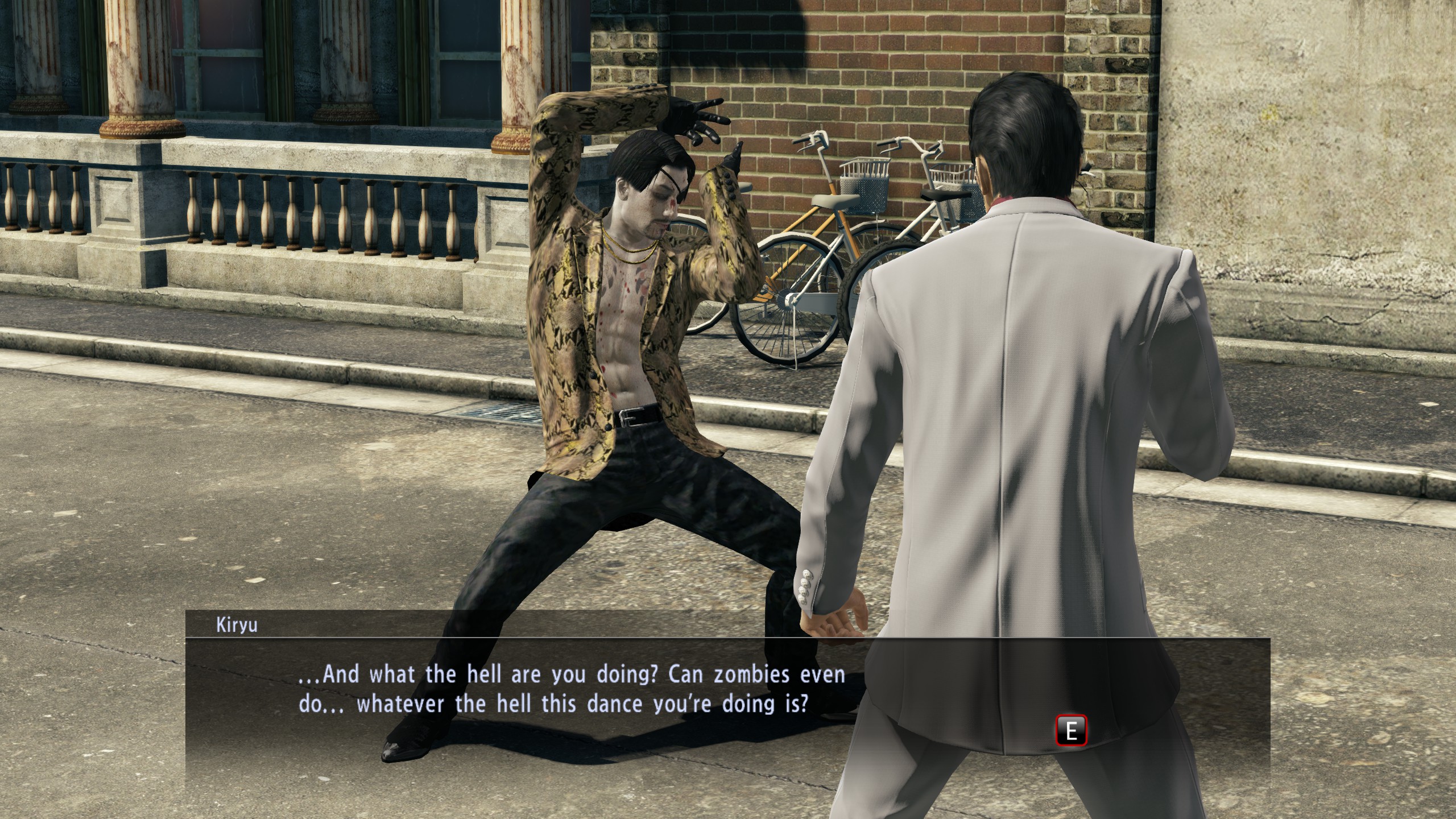
Worse still, the system feels incredibly jarring whenever you encounter the version of Majima that appears in the story proper. The character has softened a lot across the series, and so the version of him newly written into Majima Everywhere feels like a completely different person to that found in the 13-year-old main plot. One second he's impersonating a club hostess as a way to goad Kiryu into a fight, the next he's brutally beating his own men for not following instructions he never explicitly gave them. There's always some dissonance to be found in open world games, but this is a failure of characterisation in a series that revolves around the bonds between its characters. That's difficult to reconcile.
Despite everything, I still recommend Yakuza Kiwami. If nothing else, it's worth it for the story, which introduces characters and events that go on to shape the series as a whole. More than the internal disputes of the Tojo Clan or the peculiar friendship of Kiryu and Majima, the heart of the series' story revolves around Kiryu's relationship with Haruka. That makes Yakuza Kiwami, and the pair's initial meeting, an important part of the series as a whole. Kiwami is probably my least favourite Yakuza game, but it's still an evocative, detailed and largely entertaining gangster thriller full of charm and absurdity.
Suffers in comparison to Yakuza 0, but is still a compelling drama and an important part of the series as a whole.

Phil has been writing for PC Gamer for nearly a decade, starting out as a freelance writer covering everything from free games to MMOs. He eventually joined full-time as a news writer, before moving to the magazine to review immersive sims, RPGs and Hitman games. Now he leads PC Gamer's UK team, but still sometimes finds the time to write about his ongoing obsessions with Destiny 2, GTA Online and Apex Legends. When he's not levelling up battle passes, he's checking out the latest tactics game or dipping back into Guild Wars 2. He's largely responsible for the whole Tub Geralt thing, but still isn't sorry.
